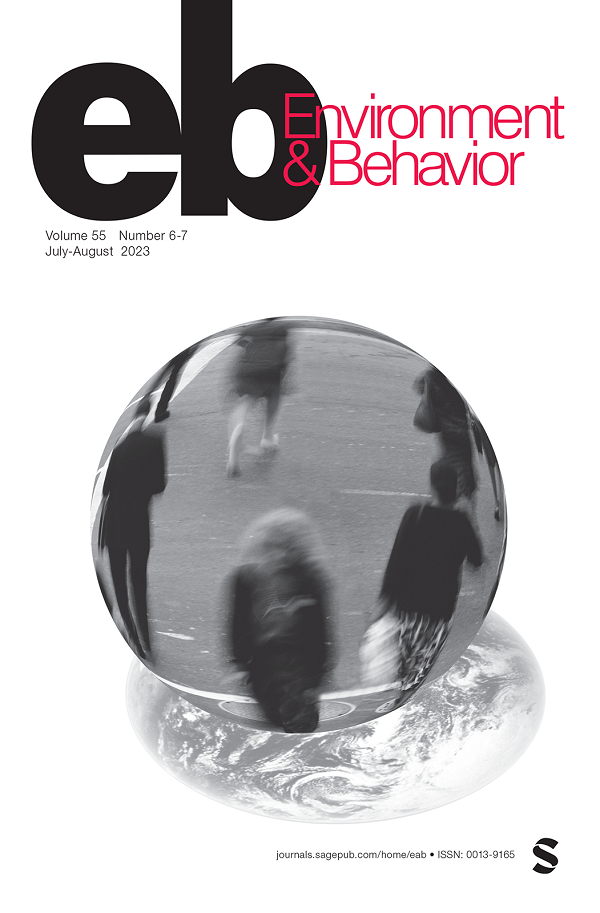影响生活在各种家庭类型中的老年人自然参与程度和质量的因素
IF 4.6
2区 心理学
Q1 ENVIRONMENTAL STUDIES
引用次数: 16
摘要
自然互动被视为解决许多健康问题的一种潜在的廉价干预措施。衰老与健康和行动能力下降有关。众所周知,老年人从自然接触中受益;然而,人们对衰老如何限制人们接触大自然知之甚少。我们调查了居住在家庭、小型和疗养院的老年人,以确定推动自然参与度和可用自然质量变化的因素。随着年龄的增长,人们在自然环境中花费的时间越来越少,这取决于自然联系的程度、脆弱状态、家庭类型以及他们是否独自生活。大多数人报告说,他们减少了对自然的参与,并表达了悲伤、沮丧和愤怒的情绪。花园在保持与自然的接触方面发挥了重要作用,因为在花园里度过的时间与年龄或虚弱无关。花园的可变性意味着,对于那些居住在小型疗养院和疗养院的人来说,自然体验的质量可能更低。本文章由计算机程序翻译,如有差异,请以英文原文为准。
Factors Affecting the Extent and Quality of Nature Engagement of Older Adults Living in a Range of Home Types
Nature interaction is seen as a potentially inexpensive intervention to address many health issues. Aging is associated with declining health and mobility. Older people are known to benefit from nature contact; however, less is known about how aging limits access to nature. We investigated older adults occupying family, downsized, and rest homes to determine factors driving changes in nature engagement, and the quality of available nature. Less time was spent in natural places as people aged, depending on the extent of nature connectedness, frailty status, home type, and whether they lived alone or not. Most reported reduced nature engagement and expressed feelings of sadness, frustration, and anger. Gardens assumed an important role in enabling nature contact to continue, in that time spent in gardens was unrelated to age or frailty. Garden variability meant the quality of the nature experience was likely lower for those living in downsized and rest homes.
求助全文
通过发布文献求助,成功后即可免费获取论文全文。
去求助
来源期刊

Environment and Behavior
Multiple-
CiteScore
13.30
自引率
1.80%
发文量
13
期刊介绍:
Environment & Behavior is an interdisciplinary journal designed to report rigorous experimental and theoretical work focusing on the influence of the physical environment on human behavior at the individual, group, and institutional levels.
 求助内容:
求助内容: 应助结果提醒方式:
应助结果提醒方式:


